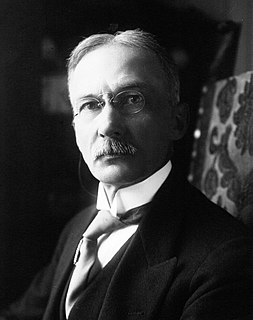A Quote by James Mark Baldwin
Like all science, psychology is knowledge; and like science again, it is knowledge of a definite thing, the mind.
Related Quotes
The knowledge of the individual citizen is of less value than the knowledge of science. The former is the opinion of individuals. It is merely subjective and is excluded from policies. The latter is objective - defined by science and promulgated by expert spokesmen. This objective knowledge is viewed as a commodity which can be refined... and fed into a process, now called decision-making. This new mythology of governance by the manipulation of knowledge-stock inevitably erodes reliance on government by people.
The essence of modernity is that progress no longer waits on genius; instead we have learned to put our faith in the organized efforts of ordinary men. Science is as old as the race, but the effective organization of science is new. Ancient science, like placer mining, was a pursuit of solitary prospectors. Nuggets of truth were found, but the total wealth of knowledge increased slowly. Modern man began to transform this world when he began to mine the hidden veins of knowledge systematically.
Where faith commences, science ends. Both these arts of the human mind must be strictly kept apart from each other. Faith has its origin in the poetic imagination; knowledge, on the other hand, originates in the reasoning intelligence of man. Science has to pluck the blessed fruits from the tree of knowledge, unconcerned whether these conquests trench upon the poetical imaginings of faith or not.
If the term education may be understood in so large a sense as to include all that belongs to the improvement of the mind, either by the acquisition of the knowledge of others or by increase of it through its own exertions, we learn by them what is the kind of education science offers to man. It teaches us to be neglectful of nothing - not to despise the small beginnings, for they precede of necessity all great things in the knowledge of science, either pure or applied.
Knowledge signifies things known. Where there are no things known, there is no knowledge. Where there are no things to be known, there can be no knowledge. We have observed that every science, that is, every branch of knowledge, is compounded of certain facts, of which our sensations furnish the evidence. Where no such evidence is supplied, we are without data; we are without first premises; and when, without these, we attempt to build up a science, we do as those who raise edifices without foundations. And what do such builders construct? Castles in the air.








































